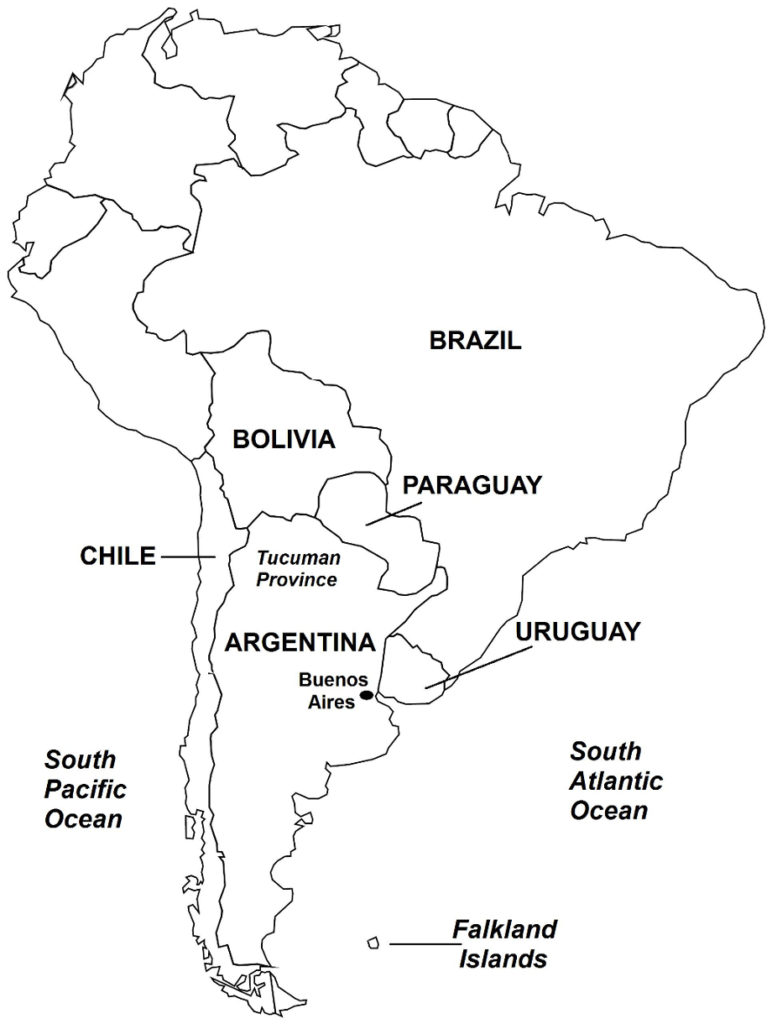On December 5, 1983, military junta rule by the National Reorganization Process (Spanish: Proceso de Reorganización Nacional) ended in Argentina. A succession of juntas had ruled with authoritarian powers since 1976 after the military seized power by ousting President Isabel Peron (wife of former President Juan Peron) in a coup.
(Taken from Dirty War – Wars of the 20th Century – Volume 1)
The military’s stated reason for the Peron coup was to prevent the communist take-over of the country. Thereafter, a military junta came to power. Argentina’s legislature was abolished, while the judicial courts were restructured to suit the new militarized system. The academic and intelligentsia were suppressed, as were labor and peoples’ assemblies. The military government instituted harsh measures to stamp out communist and leftist elements. Also targeted by the military were opposition politicians, journalists, writers, labor and student leaders, including their supporters and sympathizers.

The military operated with impunity, arbitrarily subjecting their suspected enemies to arrests, interrogations, tortures, and executions. One infamous method of execution was the “death flight”, where prisoners were drugged, stripped naked, and held down with weights on their feet, and then boarded onto a plane and later thrown out into the Atlantic Ocean. Since death flights and other forms of executions made certain that the bodies would not be found, the victims were said to have disappeared, striking great fear among the people. Another atrocity was allowing captured pregnant women to give birth and then killing them, with their babies given to the care of and adopted by military or right-leaning couples. The military and Triple A death squads carried out these operations clandestinely during the Dirty War.
The military government’s anti-insurgency campaign was so fierce, sustained, and effective that by 1977, the leftist and communist groups had practically ceased to exist. Hundreds of rebels, who had escaped to the nearby countries of Brazil, Uruguay, Paraguay, Bolivia, and Chile, were arrested and returned to Argentina. The United States provided technical assistance to the integrated intelligence network of these countries within the scope of its larger struggle against communism in the Cold War.
The Argentinean government continued its draconian rule even after it had stamped out the insurgency. The Dirty War caused some 9,000 confirmed and up to 30,000 unconfirmed victims from murders and forced disappearances. By 1982, however, the military’s anti-insurgency campaign, which had found wide popular support initially, was being criticized by the people because of high-level government corruption and a floundering national economy.
Seeking to revitalize its flagging image, the military government launched an invasion of the British-controlled Falkland Islands in an attempt to stir up nationalist sentiments and thereby regain the Argentinean people’s support. The Argentinean forces briefly gained control of the islands. A British naval task force soon arrived, however, and recaptured the Falkland Islands, driving away and inflicting heavy casualties on the Argentinean forces.
Consequently, Argentina’s military government collapsed, ending the country’s militarized climate. Argentina then began to transition to civilian rule under a democratic system. After the country held general elections in 1983, the new government that came to power opened a commission to investigate the crimes committed during the Dirty War. Subsequently, a number of perpetrators were brought to trial and convicted. Some military units broke out in rebellion in protest of the convictions, forcing the Argentinean government to pass new laws that reduced the military’s liability during the Dirty War. In 1989, a broad amnesty was given to all persons who had been involved, indicted, and even convicted of crimes during the Dirty War.
In June 2005, however, the Argentinean Supreme Court overturned the amnesty laws, allowing for the re-opening of criminal lawsuits for Dirty War crimes. The fates of many persons killed and disappeared, as well as the infants taken from their murdered mothers, remain unsolved and are subject to ongoing investigations.
